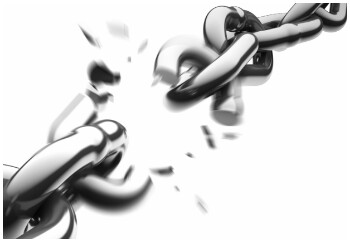
Former Wall Street Executive: Complexity Of Today’s Banks ‘Makes You Weep Blood Out Of Your Eyes’ via Think Progress
Another former Wall Street executive has emerged to advocate reform of banks in the "too big to fail" category.
Sallie Krawcheck, once the head of Bank of America's wealth management division, was a guest panelist at the Bloomberg Markets 50 Summit on Thurs., Sept. 13 when she made the stunning observation about the complexity of big bank operations.
She joins Sandford Weill, former Citigroup head, who advocated the break up of big banks back in July.
The chorus opposing such measures has been adamant. Two voices in particular merit consideration--Jamie Dimon, CEO of JP Morgan and his predecessor, William B. Harrison Jr.
Touting the benefits of the too-big-to-fail scale, Jamie Dimon actually used the "port in the storm" metaphor to bolster his argument--this from the head of a bank that lost $5.8 billion in credit derivatives trades.
Writing in the New York Times, William B. Harrison Jr. wields a straw man, the first of several, to launch his defense of big banks. Serously, who is arguing that breaking up big banks will eliminate the risk of future crises? He'd have no trouble naming the source of the phony argument if someone were actually making it.
Wouldn't he also name the source of the fallacy that the emergence of the big bank was an artificial, unnatural market development? Worse is the bale of grass he stuffs into the notion that anyone with a shred of credibility blames big banks for the 2008 financial meltdown.
There is a very compelling reason why the likes of Messrs. Harrison and Dimon would defend the size and scope of big banks--a reason they'd probably never admit in polite company. What is at stake for them is the generous compensations earned by CEOs at said financial behemoths.
How is this so?
Harvard-trained economist Xavier Gabaix and his research partner, Augustin Landier, have taken a look at CEO compensation and its link to a company's market capitalization (the value of its share price multiplied by number of shares issued by the company).
What they found happening between the years of 1980 and 2003 is that CEO compensation increased by a multiple of six--along with the market capitalization growth for large U.S. corporations. As The American put it more bluntly: "The trend lines of market capitalization and executive payouts rose and dipped in near-perfect tandem."
One might acknowledge the same motivating impulse with participants in a betting pool--the larger pool, the greater the payout.
So, what difference does this make for the economy and the nation as a whole?
The public should be asking, what's the worth of systemic risk that massive financial institutions pose? For an example, consider the scenario when certain big banks knowingly sold toxic assets to institutional investors who managed 401k's, pension- and mutual funds.
What resulted from buying the imploding mortgage-backed assets? Millions of mid-income, hard working citizens were hooked for the losses set in motion by defaulting borrowers.
So, is the American public ready to confront goliath financial institutions for what they are? That synaptic network of transactions--enabling those massive capitalizations that money-starved CEOs dream of--which have very little to offer for the greater good of a nation seeking stability and sustainable economic growth.
 Tuesday, September 25, 2012 at 1:14PM
Tuesday, September 25, 2012 at 1:14PM 
 Email Article | tagged
Email Article | tagged  NFL,
NFL,  lassez-faire,
lassez-faire,  libertarian,
libertarian,  replacement referees,
replacement referees,  unions
unions 

